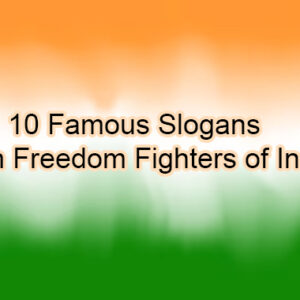10 Famous Slogans From Freedom Fighters of India
On Republic Day, Independence Day, or any national holiday, we primarily remember our National Heroes (Indian Freedom Fighters). As it is incorrect. We must never forget our liberation fighters or their catchphrases.
Slogans play a unique significance in India’s struggle for independence. Every pro-independence slogan given voice gave the Indian revolutionaries new energy, and each one ultimately proved to be the final nail in the coffin of the British. The people of the nation were greatly inspired by these slogans used by the Indian revolutionaries during their struggle for independence.
Freedom warriors primarily benefited society by inspiring and motivating others to fight injustice. They serve as the movement’s pillars, supporting it. They made individuals more conscious of their rights and authority. It was only possible for India to achieve freedom from all forms of colonialism and injustice thanks to the freedom warriors.
Many well-known freedom fighters contributed significantly and outstandingly to the war for freedom. They have well-known catchphrases. Each catchphrase has a distinct meaning and is associated with a particular event or place.
A slogan is a short, to-the-point statement or motto that is used to define a certain objective or situation. Any recognizable individual or personality can offer a slogan.
Giving a slogan serves two purposes: either to inspire others or to symbolize a particular idea or objective. The catchphrase itself may serve as inspiration.
The list of significant Freedom Fighter Slogans is provided below.
1. Do or Die by Mahatma Gandhi

Here is a mantra, a brief one that I give you. He said it during the Quit India Movement in 1942 during his address at Gowalia Tank Maidan (August Kranti Maidan in Mumbai). Imprint it on your hearts so that you can express it with each breath, he advised. “‘Do or Die’ is the credo. Gandhi once declared, “We shall not live to see the prolongation of our enslavement; we shall either free India or die trying.
2. Inquilab Zindabad by Shaheed Bhagat Singh
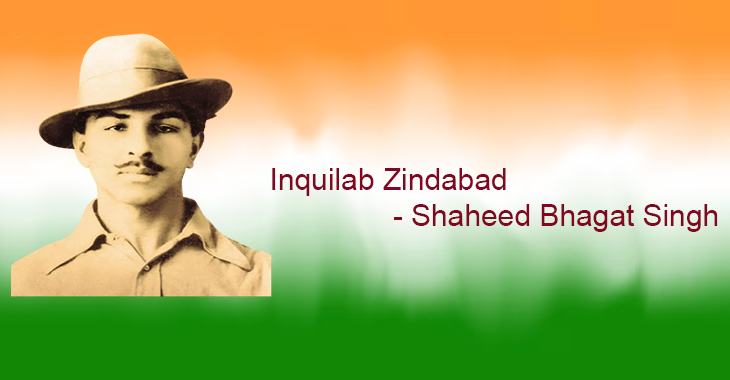
The English translation of this phrase is “Long live the revolution.” Maulana Hasrat Mohani came up with the phrase. During the Delhi Central Assembly bombing, Bhagat Singh yelled the phrase.
Indeed, Bhagat Singh was a great patriot. He not only battled for the country’s freedom, but he was also willing to risk his life to achieve it. His passing sparked intense patriotic feelings across the nation.
3. Tum Mujhe Khoon Do Mai Tumhe Aazadi Dunga by Netaji Subhash Chandra Bose
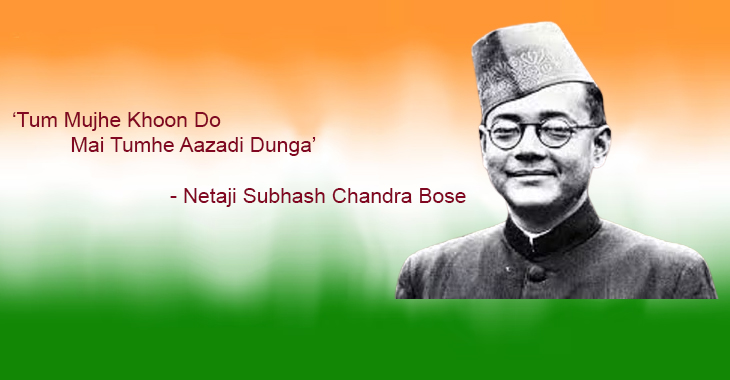
One of India’s most celebrated independence warriors was Netaji Subhash Chandra Bose. He came up with this catchphrase while raising the Azad Hind Fauz and invading India from the Myanmar border in order to inspire the populace to fight the British. He said, “You give me blood, and I’ll give you freedom.” He is regarded as one of those outstanding freedom warriors and is well-remembered.
Jai Hind, the phrase uttered by Netaji Subhash Chandra Bose, is another. The phrase was invented by Zain-ul Abideen Hasan. He was the Hyderabad-based collector’s son. The phrase was subsequently utilized by Netaji throughout his freedom movement.
4. Satyamev Jayate by Pandit Madan Mohan Malviya
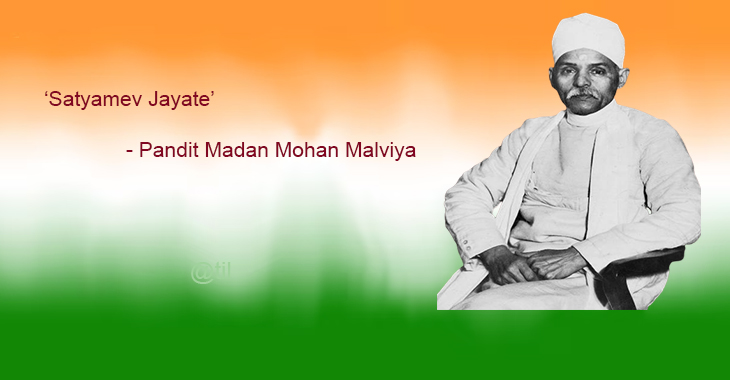
The English translation of this phrase is “Truth alone triumphs.”Satyamev Jayate” or “truth always wins” is the national anthem of the Indian Constitution. It is part of the Indian national anthem and is written in Devanagari script at the base of the Lion Capital of Ashoka. Madan Mohan Malaviya, who received the prestigious title of Mahamana for the first and final time in India, is the model male of his time. Malaviya Ji stood out for his honesty, brahmacharya, physical fitness, and patriotism.
It was chosen as India’s national slogan on January 26, 1950, and is inscribed in script at the bottom of our national emblem. This phrase is borrowed from the Mundaka Upanishad, a Hindu text.
5. Sarfaroshi Ki Tamanna, Ab hamare dil mein hai by Ramprasad Bismil

A slogan was afterwards developed from a poem by Bismil Azimabadi by Ramprasad. The urgency of people standing up for what is right was emphasized by this slogan. Bismil opposed British monarchy rule during the conflict. In 1922, the poem “Sabah” appeared in the Abdul Gaffar Magazine.
The poem’s title, which translates to “the desire for sacrifice,” captures the fervor and dedication of Indian freedom warriors who were prepared to give their lives to advance their country’s independence. “Sarfaroshi ki tamanna ab hamare dil mein hai / Dekhna hai zor kitna bazu-e-qatil mein hai,” the poem’s first lines, reflect this yearning for sacrifice and the readiness to confront the oppressor. The poem emphasizes the sacrifices made by Sukhdev, Rajguru, and Bhagat Singh who were Bismil’s contemporaries in the freedom movement.
6. Sare Jahaan Se Acha Hindustan Hamara by Muhammad Iqbal
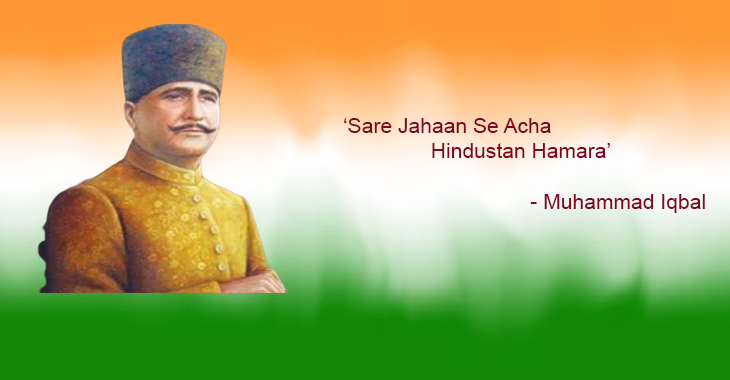
Muhammad Iqbal penned it in 1904 under the name Tarana-e-hind. He raised people’s political consciousness by using poetry and music. Iqbal penned “Sare Jahan se Achha Hindustan Hamara”; the well-known song served as a rallying cry to instill a sense of patriotism in the young. The Indian Armed Forces continue to sing and routinely play the song’s condensed version as a marching song.
In 1904, Muhammad Iqbal published Saare Jahan Se Accha under the title Tarana-e-hind. One of the most patriotic songs ever written, it became a song of resistance to British control. He was considered as the Spiritual Father of Pakistan, nevertheless, following the split.
7. Jai Jawan Jai Kisan by Lal Bahadur Shastri

This catchphrase was introduced by Lal Bahadur Shastri in 1965. He served as India’s second prime minister. During a speech at a large crowd in Uruwa, Prayagraj, he used this catchphrase. He served as the nation’s leader in the 1965 Indo-Pakistan War. The nation had a severe drought following the war. Shastri popularized the phrase “Jai Jawan Jai Kisan” and pushed the Indian people to observe a day of fasting.
8. Swaraj mera janam sidh adhikar hai, aur mai ise lekar rahunga by Bal Gangadhar Tilak

This phrase literally means “Swaraj is my birthright and I shall have it.” Bal Gangadhar Tilak created this slogan with the intention of rousing Indians’ sense of nationalism and mobilizing them to fight the British. Popular nationalist, social reformer, and lawyer who fought fervently for human rights. His catchphrase inspired individuals to achieve ultimate freedom as well as sparked love for the nation.
Tilak launched two Marathi daily newspapers called “Maratha Darpan and Kesari,” which were well-liked by the general public. Tilak denounced the brutality of British authority and their superiority complex against Indian culture in this passage.
Because of his demands, the British administration immediately granted the Indians full swaraj. As a result because of his articles appearing in Kesari, he was sent to jail several times.
9. Vande Mataram by Bankim Chandra Chatterjee

Bankim Chandra Chattopadhyaya composed the poem Vande Matram in 1870. The poem was composed in Bengali. In 1882, he also published the poem in the Bengali book Anandamath. At the 1896 Calcutta Congress Session of the Indian National Congress, Rabindranath Tagore sang the poem.
Bankim Chandra Chatterjee, an Indian journalist and activist, wrote a poem titled “Vande Mataram,” which translates to “Mother, I bow to thee.” In this poem, which Rabindranath Tagore later turned into a song, he idealized India as the Goddess and mother during the Indian National Movement. The poem’s opening line has been made the current national anthem of India. Many people have heard “Vande Mataram” on the radio to salute the motherland respectfully.
10. Remain united by Sardar Vallabhbhai Patel
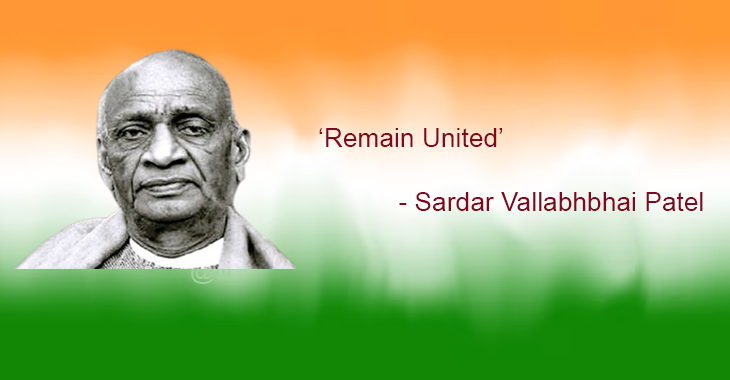
Moving forward with determination and humility while being completely aware of the situation you are in. The Indian liberation struggle benefited greatly from the contributions of Sardar Vallabhbhai Patel. The 562 princely republics of Modern India were united by the patriot, freedom warrior, and statesman to become the Republic of India. His goal was to achieve national integration, regardless of caste, ethnicity, gender, or religion. The Iron Man of India is still praised today for his accomplishments as a social leader of the highest kind.
The theme for this year’s celebration is “Nation First, Always First” as a part of the wider “Azadi Ka Amrit Mahotsav” celebration.
Read More
Top 10 Beer Cafes in Bangalore
Raksha Bandhan Special: Best 5 Classic Bollywood Movies on Siblings to Watch Together

